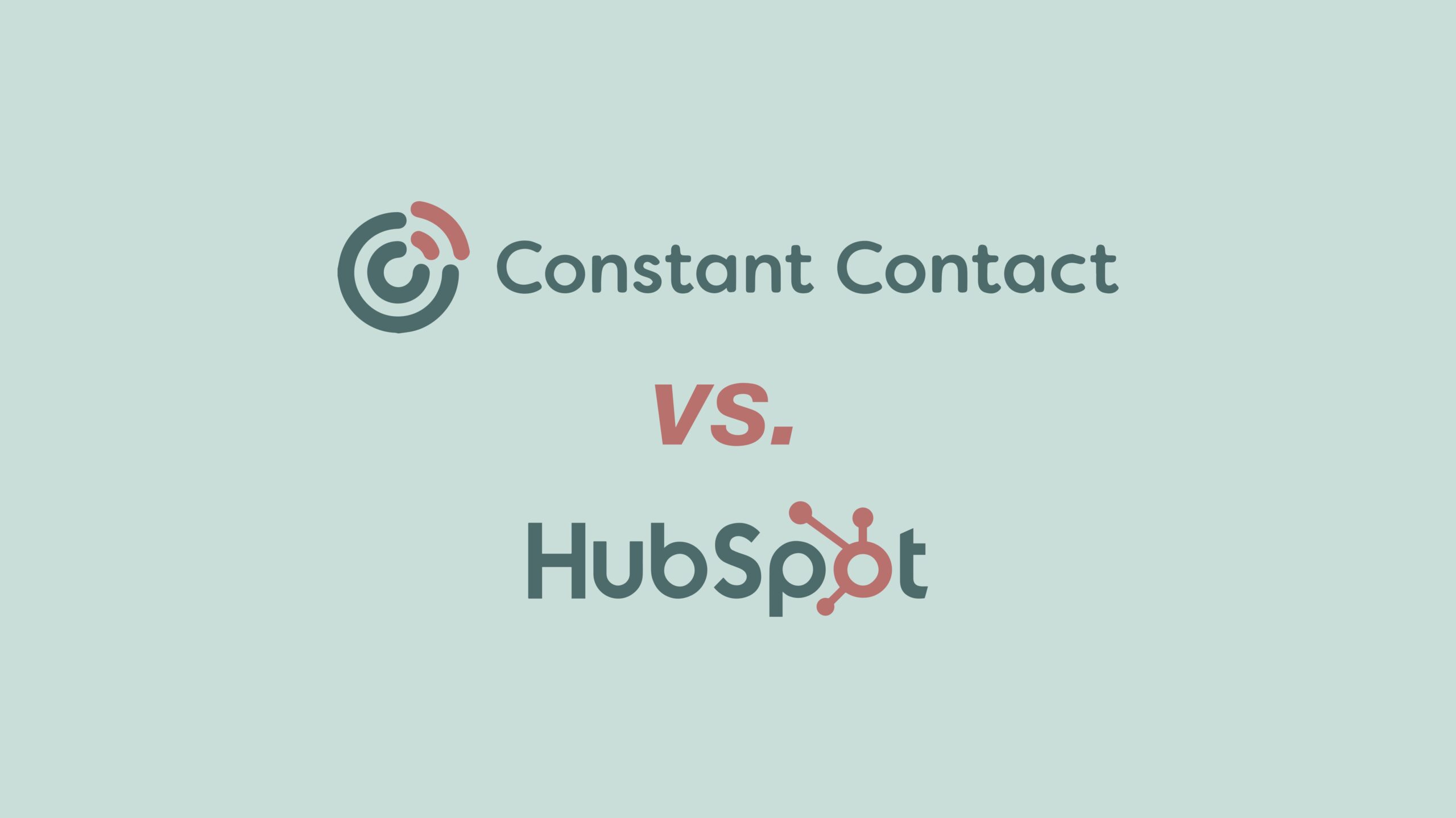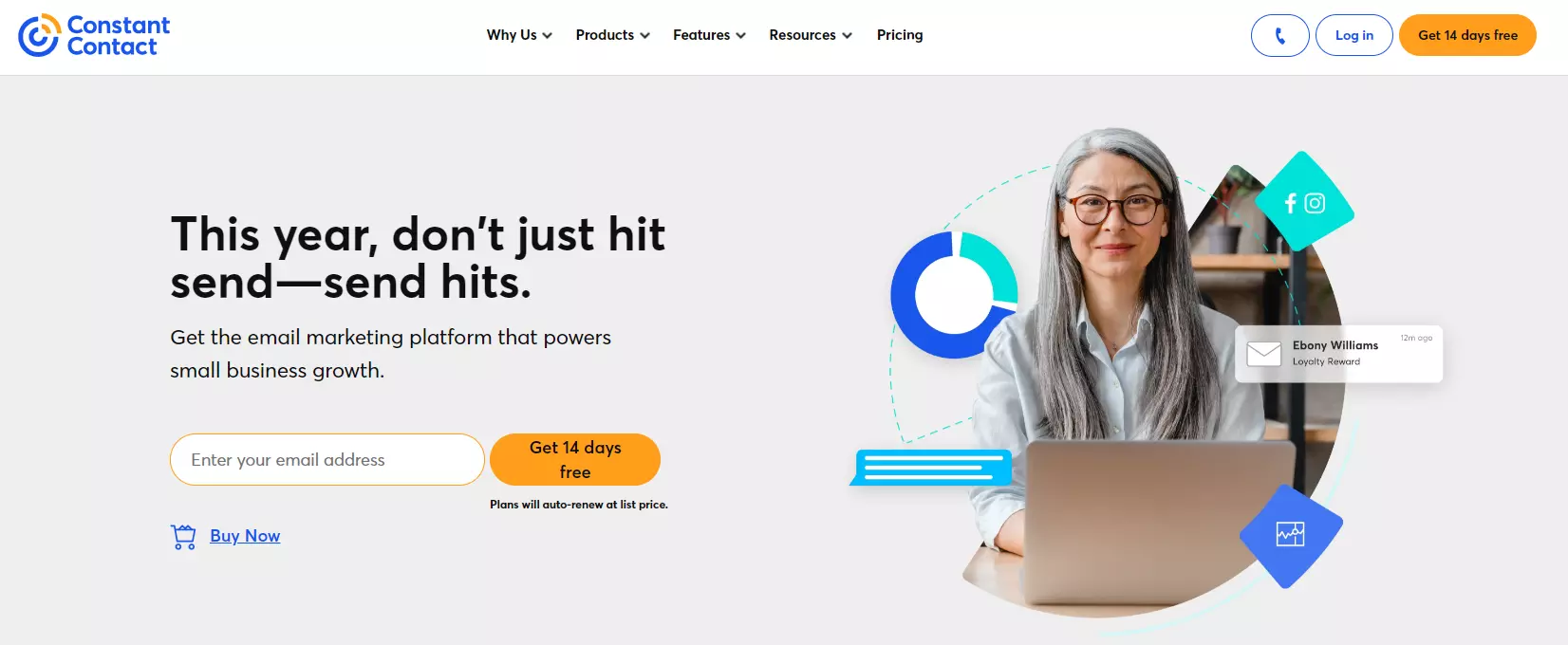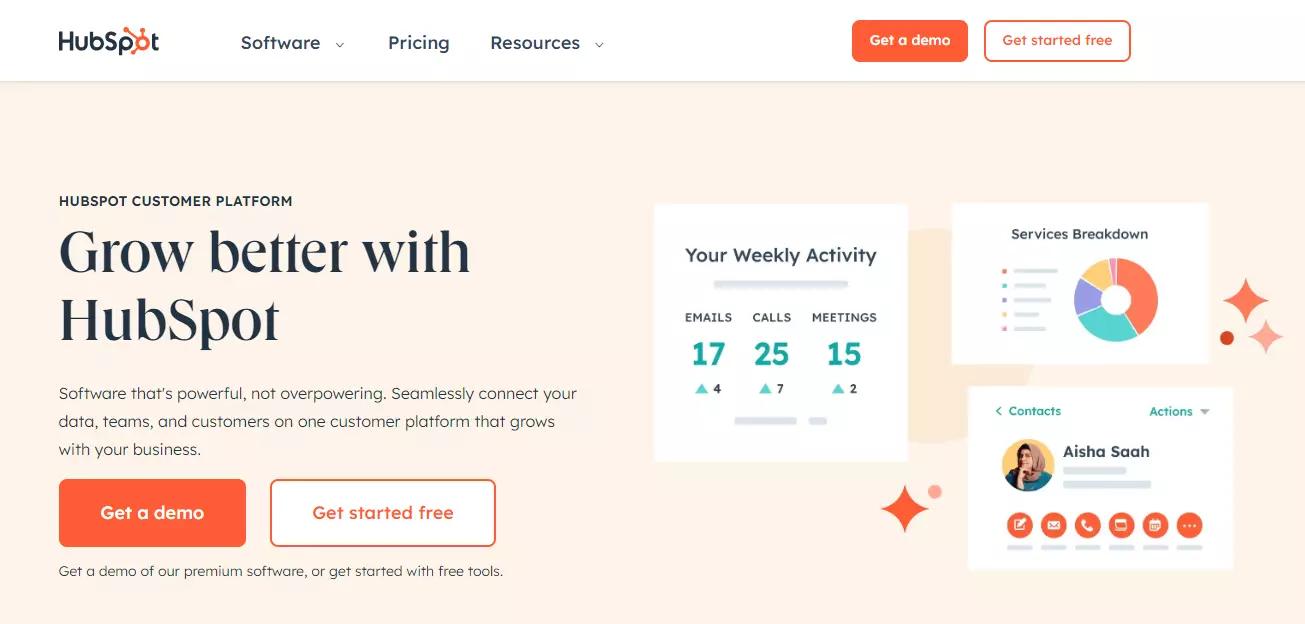
In the ever-evolving landscape of digital marketing, choosing the right platform to manage your campaigns and engage with your audience is crucial.
Although both platforms offer impressive email marketing capabilities, HubSpot presents itself as a comprehensive marketing solution encompassing various functionalities, while Constant Contact specializes solely in email marketing, catering specifically to small businesses.
Here are my findings— hope it helps you select the best email marketing tool for your business.
What is Constant Contact?

Constant Contact is an email marketing platform equipped with customizable email templates, contact management features, and automated email campaign capabilities.
With nearly three decades of experience, Constant Contact's enduring success is no coincidence.
Featuring an intuitive interface and a robust toolkit tailored for business owners, Constant Contact proves ideal for novices intent on enhancing their email marketing strategies.
What is HubSpot?

HubSpot, founded in 2006, has emerged as a powerhouse in the realm of inbound marketing.
Unlike Constant Contact, which primarily focuses on email marketing, HubSpot offers a comprehensive suite of tools encompassing email marketing, social media management, content management, CRM, and more. This all-in-one approach allows businesses to consolidate their marketing efforts within a single platform, facilitating seamless integration and data sharing.
One of HubSpot's standout features is its robust CRM system. The HubSpot CRM is free to use and offers advanced features such as contact tracking, lead scoring, and pipeline management. This empowers businesses to manage their customer relationships effectively and nurture leads throughout the sales funnel.
In addition to its CRM capabilities, HubSpot provides a wealth of resources for inbound marketing, including blogging tools, SEO optimization, and marketing automation.
The platform's intuitive interface and extensive knowledge base make it a favorite among marketers seeking to attract, engage, and delight their audience.
Constant Contact Vs HubSpot: Key Differences
When comparing Constant Contact vs HubSpot, several key differences and considerations emerge:
Scope of Features
Constant Contact specializes in email marketing, offering a straightforward solution for creating and managing email campaigns.
In contrast, HubSpot provides a broader range of tools, including CRM, social media management, and content marketing, making it suitable for businesses seeking a more comprehensive marketing platform.
Ease of Use
Constant Contact prides itself on its user-friendly interface, making it accessible to marketers of all skill levels.
HubSpot, while intuitive, may have a steeper learning curve due to its extensive feature set and customization options.
Scalability
As businesses grow and evolve, their marketing needs may change.
Constant Contact may be sufficient for small to medium-sized businesses with straightforward marketing requirements, but larger enterprises may find HubSpot's scalability and advanced features better suited to their needs.
Pricing
Constant Contact offers tiered pricing plans based on the number of contacts, starting at a lower price point compared to HubSpot.
However, HubSpot's pricing structure can be more complex, with additional costs for advanced features and user seats.
Conclusion: Constant Contact Vs HubSpot
HubSpot and Constant Contact have their distinct features.
HubSpot caters primarily to expanding and sizable enterprises seeking a comprehensive marketing platform. Its extensive array of features encompasses various business functions, potentially overwhelming users seeking a specialized email tool.
Conversely, Constant Contact targets small businesses and solo entrepreneurs in search of a cost-effective, straightforward, and concentrated email marketing solution.

